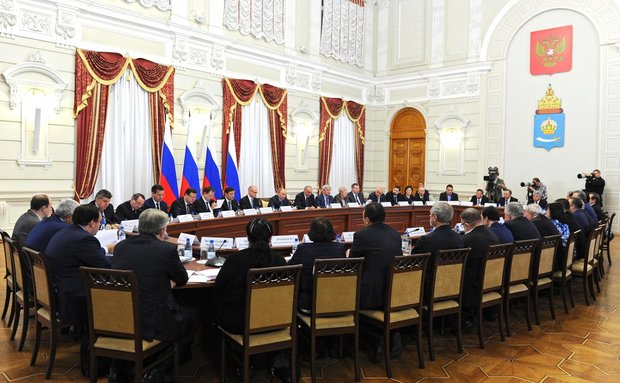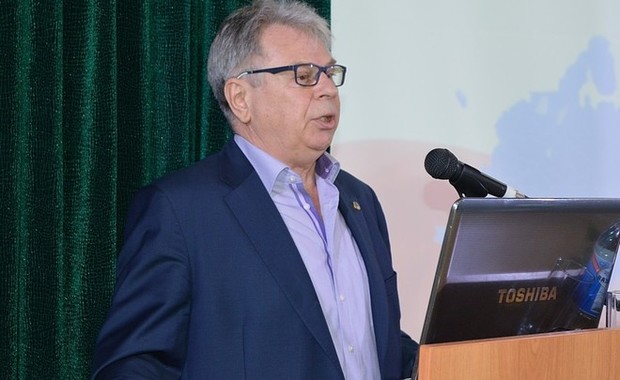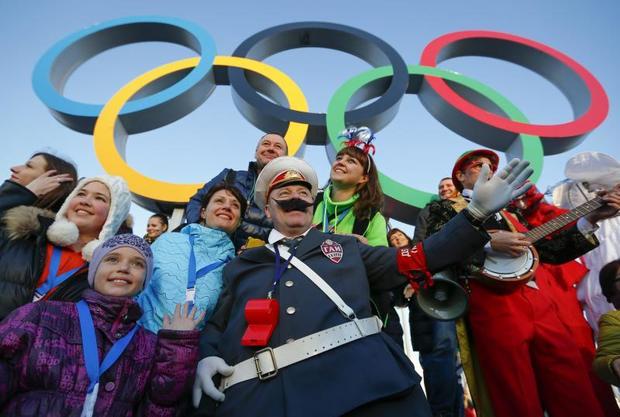Ildar Gabdrafikov: ''The Bashkirs, as well as the Tatars, are an integral part of the Russian civil nation''
An Ufa ethno-political scientists believes that the civil nation in Russia has already formed
It has been six months since Vladimir Putin instructed to draft the Law on the Russian Nation. Since then, many prominent figures have expressed their views on that topic, including for Realnoe Vremya. During this time, there have been a lot of drafts, but it is still unclear what this document will look like. An Ufa ethno-political scientist Ildar Gabdrafikov in the newspaper column written specially for our newspaper explains how he sees the future law and how to resolve issues of the national policy.
The words of Putin is law
Over the last few years, many politicians and experts in our country have begun to speak about the Russian nation quite often. But after the meeting of the Council for interethnic relations under the Russian President in Astrakhan on October 31, where Vladimir Putin supported the proposal for the adoption of the special law, they started to talk about a law of the Russian nation. Immediately following the meeting there appeared fierce supporters of this initiative, as well as tough opponents, who began to deny completely the expediency of its adoption.
In early December, on the results of the Astrakhan meeting the president approved a list of instructions, which, among others, contains the task to the Presidium of the Council under the RF President on interethnic relations ''to submit proposals on a draft of a regulatory legal act regulating relations in the sphere of strengthening the unity of multinational people of the Russian Federation (the Russian nation).''
Indeed, the problem of the formation of the Russian nation, the strengthening of the unity is urgent today; otherwise they wouldn't discuss it at the highest state level and they wouldn't adopt such important documents. I think nobody doubts that we need to save the civil unity of the Russian nation, especially it is felt during such difficult period that out country is experiencing now.
Today Russia has legal documents that regulate the sphere of national and religious relations at the federal and reginal, municipal levels. The adoption of another document – the Law on the Russian Nation, or just On Nation, perhaps, will not be sufficient. The experts are discussing it at the moment and it is unknown what document it will be – most probably, it will have a declarative-frame character. However, I am sure whatever content the law will have, it will have a crucial value for the formation of the Russian nation. First, the process of a nation-building is a multifaceted process, and it is impossible to enter it into the framework of one law; second, I believe that without this law the Russian civic nation as a today's reality has already been formed.

''After the meeting of the Council for interethnic relations under the Russian President in Astrakhan on October 31, where Vladimir Putin supported the proposal for the adoption of the special law, they started to talk about a law of the Russian nation.'' Photo: kremlin.ru
''The Russian nation is a fait accompli''
Contemporary Russia, although it is considered to be the successor of tsarist Russia, the Russian Empire and the Soviet Union, in fact, still differs from their predecessors. On the ruins of the former country there emerged 15 independent states including the Russian Federation. The reference point of its modern history started in 1990. It is a whole new phase of state-building, nation-building, and it continues to this day, although the Russian nation, in my opinion, can already be considered established.
The main task of the Russian nation building is to create loyal, loving their country's citizens, their small homeland, i.e. purposefully to shape these qualities and values in the citizens. Yes, the Russian laws should be respected in all corners of the country. Rights and obligations of a citizen of the Russian Federation move with a citizen, regardless ethnicity, religious affiliation, no matter in what region of Russia they live. But this does not mean that the state should strive for unification. On the contrary, multicultural countries should create conditions for the development of cultural diversity. Therefore, in this case it is important for the Russian state to use several regional models of nation-building. After all, Russia is a very large country, and regions have their own cultural specifics. And thus, national policy in the regions should have local historical, cultural, linguistic and other characteristics. For example, in the Caucasus — they have their own traditions and ethno-cultural situation, in Moscow — the other, as well as in the Volga region or in Siberia. A regional model of nation building should be based on local specifics and national interests should be taken into account, they should not contradict Russian national identity.
The fact that the Russian nation is fait accompli is manifested in the fact that the population is almost 100% fluent in the Russian language — the state language of our country. We, the Russians, have in common not only the fact that we have a Russian passport, but also common history, cultural values. There is no contradiction. Why, for example, the Bashkirs cannot belong to Bashkir and Russian nations? For centuries, the Bashkirs living in Russia, as well as the Tatars and other peoples of the country, are an integral part of the Russian civil nation.
Community of Russians requires constant attention and dedicated work from the state and civil society. Each new generation forms its idea of the state and has its own loyalty to the country. Russian national identity is the result of targeted efforts — from families, kindergarten, schools and to government policy.
I agree with an academician V. A. Tishkov, who claims, ''...no one questiones the right of Russians to identify themselves to different peoples and nations in their ethnic sense, but you need to know that all this is a form of collective identity among one of the long-existing people, who, according to the philosopher Ilyin, is a multinational nation. No one is ever going to remake Russians, Bashkirs, Tatars, Chechens to Russians. They are the Russians, the Russian nation, staying in their ethnicity who they think they are.'' Therefore, according to the academician, Russia is the nation of nations.

''I agree with an academician V. A. Tishkov, who claims, ''...no one questiones the right of Russians to identify themselves to different peoples and nations in their ethnic sense, but you need to know that all this is a form of collective identity among one of the long-existing people.'' Photo: Timur Rakhmatullin
What should the national policy be?
National policy, of course, should not be confined to traditional celebrations, dances, sabantuys. However, dances also have important educational value. National policy is a very capacious concept, which includes different areas of social life — it is training issues, equitable distribution of resources, language policy in education, media, etc. The national policy is the record of the number of ethnic groups at census. It is also everyday practice of state authorities and civil society institutions (including national-cultural autonomies and centers) for the maintenance of peace and harmony. National policy is the development of a state ideology and symbols, calendar (Day of Russia, Republic Day and City Day), which should bind civil unity of the population, to foster a sense of patriotism to the country, to their homeland.
We should strengthen its socio-economic base every day to ensure the nation was strong and united. We need to create jobs, provide a good operation of social mobility (especially for youth), to fight poverty, diseases, to build roads in order the standard of living of Russian citizens in the regions did not differentiate much. People should move freely across the country they should not experience discrimination on ethnic, religious or other grounds, our citizens should love their small and large motherland, proud of it. Only then we will we be truly strong and united nation.
In this respect we still have a great potential for development and improvement. For example, one of the important problems is a peculiarity of population settlement on the territory of Russia. In this respect we have in the country relatively prosperous regions, there are also (a lot of them) absolutely depressed, from where in the last 20-25 years there has been a large outflow of population. This circumstance, when there are rich and poor areas, of course, does not enhance social inclusion of citizens. Also, a not very good trend is the fact that there is a further concentration of population in and around Moscow because this process occurs at the expense of regions, it leads to a further reduction of the population there, especially active people of working age become less.
As a rule, the most promising youth is leaving to the capital. It is absolutely abnormal situation for a country when its capital lives its own life, and the regions — their own. In our country the vast territory practically is not developed or developed poorly. Our scientists predict that in the near future the population of Moscow will grow, while the total population is declining. Today in the capital and its surrounding area is home to about 25 million people, almost 1/5 of the population of the country. We should strive to ensure that for our citizens it would be prestigious to live not only in the capital but also in the periphery. To do this, in regions it is necessary to create appropriate social infrastructure and other benefits of civilization.

''The success of our country, including the sports, bring together citizens who contribute to a sense of belonging to a single state. A vivid example — the Olympic Games in Sochi in 2014.'' Photo: moscvichka.ru
However, despite the existing problems, with full confidence one can say that the Russian nation has already been formed. The Russians love their country, they proud of it. The success of our country, including the sports, bring together citizens who contribute to a sense of belonging to a single state. A vivid example — the Olympic Games in Sochi in 2014, the Universiade in Kazan in 2013, that united the country. Millions of Russians, supporting our athletes, felt a sense of pride for their homeland. There is no doubt that the upcoming 2018 World Cup will be a powerful factor to strengthen the unity of the Russian nation.